
The Dose: This week's public health explained (Sept 20)
Opioid deaths dropped, SciAm endorsement of Harris, whooping cough, FL surgeon general, and excess mortality.
Happy Friday! Time to dive into this past week in public health nuggets. And, yes, this includes good news.
Your “weather” report for the week
Covid-19 has stalled at high levels, likely due to kids attending school. We usually see a longer tail this time of year. Flu and RSV remain low.
Consider wearing a mask to protect yourself against Covid-19. It may be a good time to get your fall vaccines. Check here for a YLE guide on timing.
Good news: Opioid deaths dropped 10%
Preliminary death record data is out for April 2024; there’s excellent news. Opioid deaths decreased by 10%. This is largely thanks to harm reduction (be sure to get Narcan), community engagement and education, a ton of on-the-ground public health work, and many unknown factors. While we are still losing 90,000 Americans per year, this news offers much-needed relief.
Improvements in the Northeast primarily drive this decline; the epidemic still rages in Western states.
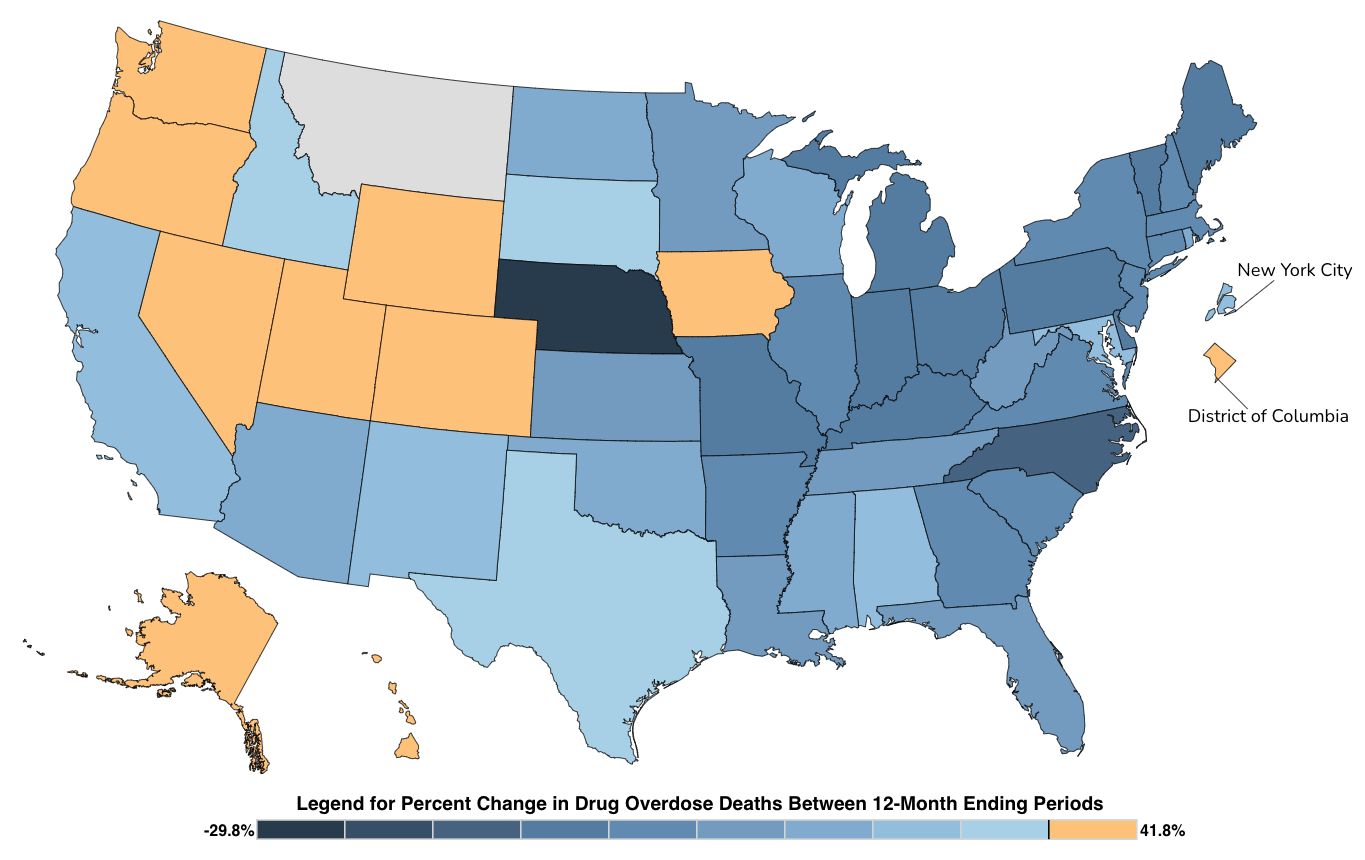
Whooping cough returns—ensure you’re up to date on your DTaP or Tdap vaccines
Today, the FDA is meeting to discuss next-generation vaccines for pertussis (also known as whooping cough).
What’s going on?
Cases of pertussis are three times higher right now than last year. This means these bacterial infections are returning to pre-pandemic levels and causing disruption. For example, a recent college football game was canceled because of a huge outbreak.
In 1997, the U.S. switched to a second-generation vaccine to reduce side effects. It still helps prevent disease but doesn’t completely stop transmission. Protection also wanes faster than the first-generation vaccine. This is one hypothesized reason for the resurgence.
Newer vaccines are being developed to provide more durable protection but have not yet been released to the market. Until then, everyone needs boosters. (Unfortunately, infection also doesn’t give lifelong protection).
CDC recommends one dose of vaccine every 10 years for adults after the primary series is completed.
Some pertussis experts have suggested that more frequent boosters may be needed.
Vaccination in the second or third trimester of every pregnancy is critical.
Don’t let the Florida surgeon general sway your decision to get vaccinated
This week, the FL surgeon general emailed providers contradicting the scientific consensus on the safety and effectiveness of the mRNA Covid-19 vaccines.
I counted over 14 rumors in his email. (He doesn’t have a good track record of evidence-based recommendations; see past YLE posts here and here.) Here, we address a few rumors from the email:
The Covid-19 vaccines aren’t exactly matched to current strains, but this doesn’t mean they aren’t useful. Covid-19 mutates quickly, so we will always be “chasing” variants. We’ve seen year after year that the Covid-19 vaccines will still work a little for infection protection and a lot for severe disease and death.
We don’t have randomized control trials (RCTs) for approving updated vaccines for two reasons:
It’s not feasible (especially for a mutating virus) and requires a lot of time, money, and volunteers.
The changes from the last iteration are small—the difference of a few amino acids, like a few letter edits in a Word document. We aren’t changing the number of words in the paper (like dosage of RNA) or the platform (like from Word to Excel).
A recent study did show that the Covid-19 vaccine increases the risk of postural orthostatic tachycardia syndrome (POTS), but the same study showed that Covid-19 infections increase the risk of POTS fivefold.
Vaccine mRNA cannot change your DNA— it lacks three specific tools.
So on and so forth. He isn’t necessarily wrong, but his interpretations are incorrect, lacking context, or irresponsible.
Regardless, the good news is that if you want to avoid mRNA COVID-19 vaccines, there is another option! Novavax is a protein-based (i.e., traditional) vaccine. Unfortunately, the FL surgeon general failed to include this critical information so Floridians could make evidence-based decisions.
Expect excess mortality to remain high—get your Covid-19 vaccine, especially those over 65 years
Actuaries, like life insurance companies, have kept a close tab on excess mortality since the beginning of Covid-19. As you can imagine, this impacts their risk calculus (and thus your monthly payment). This week, a German report estimated that excess mortality in the U.S. will remain higher than pre-pandemic levels for the next decade.
On one hand, this makes sense—we have a new disease in our repertoire. However, given that we have vaccines and treatments, we can return to pre-pandemic levels.

Opinion: Scientific American endorses Harris
This has sparked a heated debate about the overlap of science, policy, and advocacy. Many have jumped in, including the Wall Street Journal Editorial Board, The Atlantic, and thousands on social media.
There is a danger of mixing scientific translation and advocacy without acknowledging that advocacy isn’t just based on objective data; values play a role. We saw this time and time again during the Covid-19 emergency. When the lines are blurred, it builds short-term tribalism but can erode long-term trust.
Yes, advocacy is important. Yes, Trump has said many unscientific things. Yes, public health policy is inherently political. And this world also needs a steady, empathetic, humble, scientific truth—a bedrock of data—on which people from various ideologies can engage. (This is where I hope YLE lives and where I think SciAm should live.) Then, people can layer on their values. After all, health policy isn’t just based on science but also on culture, values, history, and psychology.
This bedrock is possible and needed. One of the best emails I have ever received was after someone read the YLE post on how the mifepristone (abortion pill) Supreme Court case was based on intentionally flawed science:
“Thank you for sharing this. As an ardent pro-life believer, this is highly disturbing and upsetting that some ‘scientists’ would so intentionally use misleading and incorrect information. Coercion and misleading data should never, ever be part of that process. Thank you for shedding light on this and for approaching such a fraught issue with such grace and compassion.”
What can be done to combat the politicization of science? Dr. Matt Motta provided recommendations during the 2020 elections:
Spark interest in and curiosity about scientific research through how we talk about it, art, and education.
Run for office.
Question grab bag
If my Covid antigen at-home test is positive for a long time (14, 21, 28 days), am I still contagious?
Unfortunately, we don’t have good data on this. But, most likely, you’re still contagious. Covid-19 antigen tests are very good at detecting infectious Covid-19 virus. (PCRs, conversely, are good at telling whether you have the virus, regardless of infectiousness.) Be sure to wear a mask.
Poll of the Week
Scroll down this email to see the answer. You will be surprised. (At least I was!)
Bottom line
You’re now caught up on public health nuggets for the week! Have a great weekend.
Love, YLE
“Your Local Epidemiologist (YLE)” is founded and operated by Dr. Katelyn Jetelina, MPH PhD—an epidemiologist, wife, and mom of two little girls. The main goal of this newsletter is to “translate” the ever-evolving public health science so that people will be well-equipped to make evidence-based decisions. This newsletter is free to everyone, thanks to the generous support of fellow YLE community members. To support this effort, subscribe below:
Poll Answer: Only 43% (or 2 out of 5) of Americans recognize the dangers of raw milk. We have a lot of work to do.






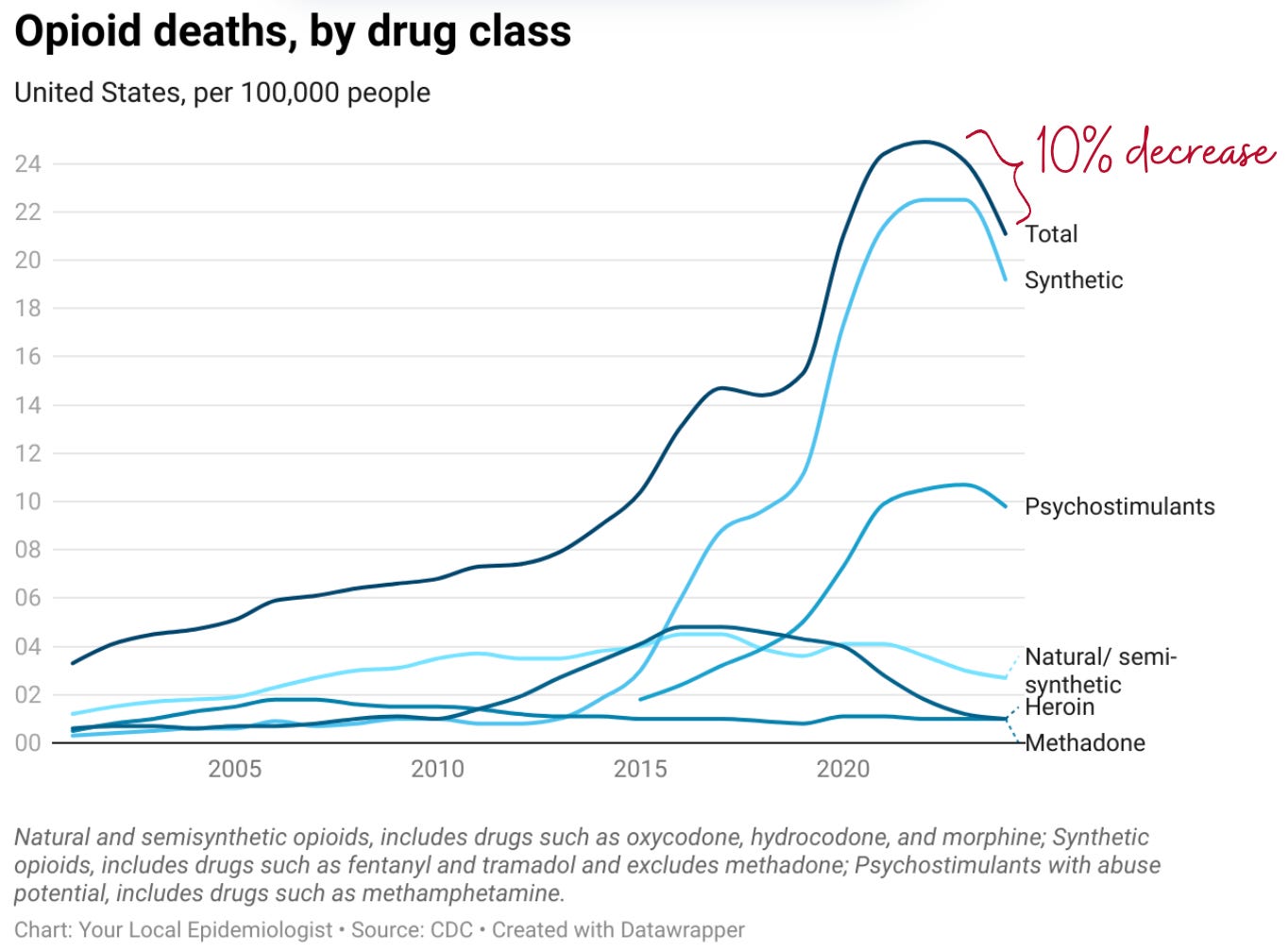
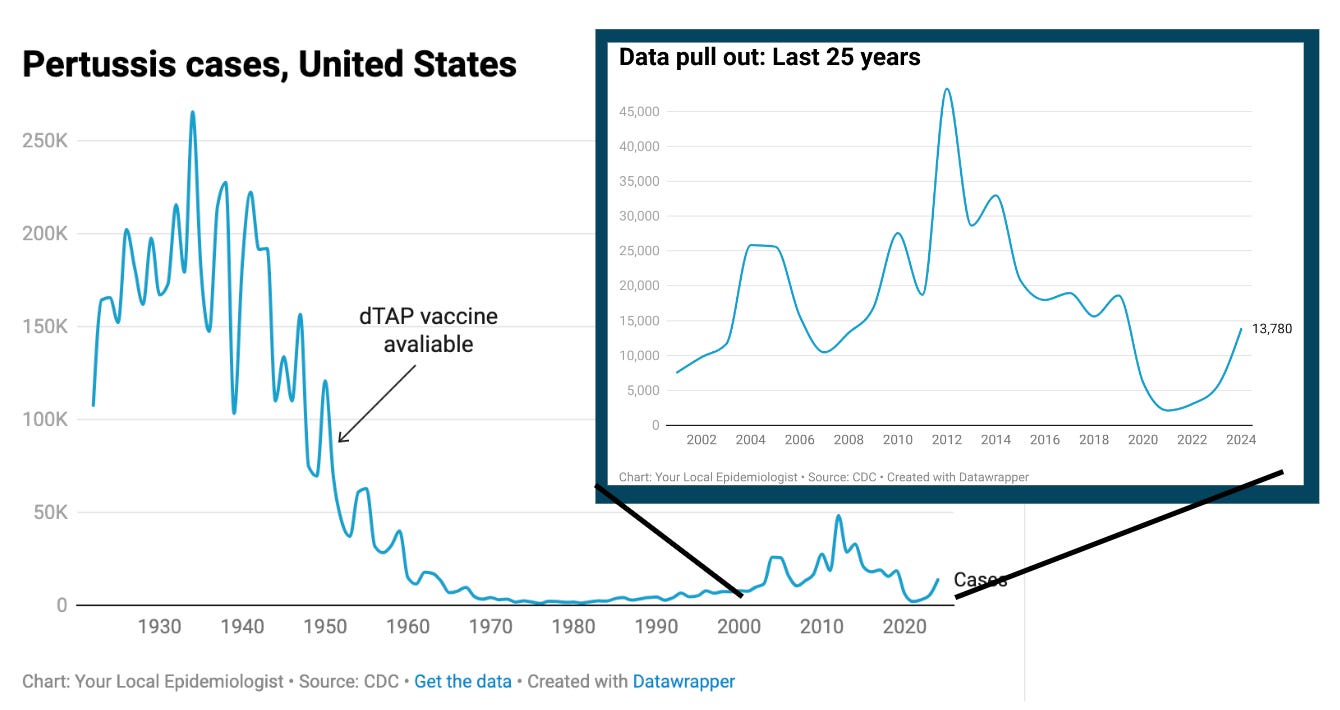





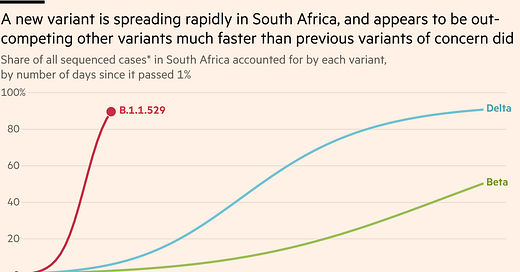

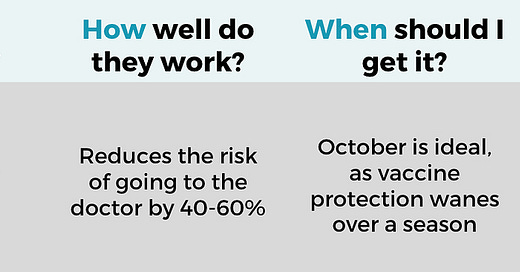



Excellent, as always. A take-home point for me was this: “And this world also needs a steady, empathetic, humble, scientific truth—a bedrock of data—on which people from various ideologies can engage.” Team TLE definitely lives in that realm, which is all the more reason to be grateful to you all!
Sometimes the anti-scientific stance of certain politicians is so egregious that it forces scientists to take a side. Anti-vax RFK Jr as head of Health and Human Services would be a complete disaster. And while we are overlapping with politics, the opioid crisis curve trending downwards was not all luck. Heather Cox Richardson wrote earlier today:
“With more than 70,000 Americans dying of opioid overdoses in 2020 and numbers rising, the Biden-Harris administration prioritized disrupting the supply of illicit fentanyl and other synthetic drugs. They worked to seize the drugs at ports of entry, sanctioned more than 300 foreign people and agencies engaged in the global trade in illicit drugs, and arrested and prosecuted dozens of high-level Mexican drug traffickers and money launderers.
In March 2023 the Biden-Harris administration made naloxone, a medicine that can prevent fatal opioid overdoses, available over the counter. The administration invested more than $82 billion in treatment, and the Department of Health and Human Services worked to get the treatment into the hands of first responders and family members.
Addressing the crisis of opioid deaths meant careful, coordinated policies.”
And if anyone wants a primer on how to use Narcan (or Epipens, or CPR!) I collected a couple quick videos on this back in the day:
https://mccormickmd.substack.com/p/three-potentially-life-saving-techniques
Great update. You have my vote and upgraded subscription! If y’all haven’t upgraded it’s time :)